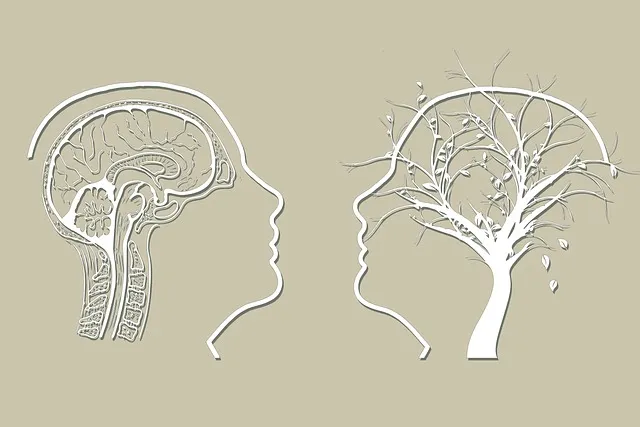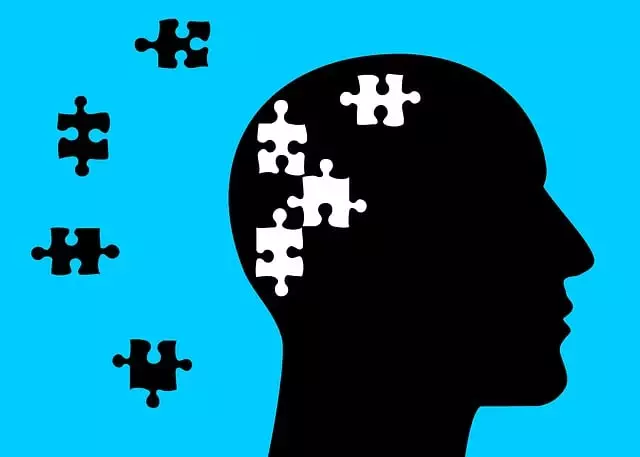The demand for digital mental wellness solutions highlights the need to cater to diverse user needs, with the Golden Kaiser Permanente mental health department number providing valuable insights. By analyzing user queries and trends, developers can identify high-demand areas like resilience-building tools. Incorporating mind over matter principles ensures app alignment with evolving expectations, improving mental health outcomes. Prioritizing user needs, offering personalized experiences, accessible interfaces, and evidence-based therapies backed by organizations like Kaiser Permanente's mental health department is key. Privacy and data security through strong encryption, secure storage, and anonymization build user trust, encouraging engagement with mental wellness resources.
In today’s digital age, mental wellness app development is a vital tool for improving access to care. With the Golden Kaiser Permanente mental health department leading the way, understanding user needs is crucial. This article explores key aspects of creating effective apps, including designing user-centric features that cater to diverse mental health journeys. We delve into integrating evidence-based therapies and ensuring robust privacy and data security measures, essential for building trust with users seeking support.
- Understanding Mental Health App Needs
- Designing User-Centric Features
- Integrating Evidence-Based Therapies
- Ensuring Privacy and Data Security
Understanding Mental Health App Needs

The demand for digital mental wellness solutions is on the rise, with an increasing number of individuals seeking support beyond traditional therapy settings. This shift highlights a crucial need to understand and cater to diverse mental health app requirements. The Golden Kaiser Permanente mental health department number serves as a significant point of contact for many, offering valuable insights into community needs and preferences.
By analyzing user queries, feedback, and trends, developers can identify specific areas where apps can make an impact. For instance, resilience building tools are in high demand, with users seeking ways to manage stress and anxiety effectively. Incorporating mind over matter principles, which empower individuals to take control of their mental well-being, can significantly contribute to app success. These insights ensure that app development aligns with the evolving expectations of users, fostering a sense of calm and improved mental health outcomes.
Designing User-Centric Features

When designing features for a mental wellness app, it’s imperative to keep the user at the heart of every decision. This means understanding their unique needs and preferences, especially those seeking support from the Golden Kaiser Permanente mental health department number. Incorporating personalized experiences that cater to individual struggles can significantly enhance engagement. For instance, some users might benefit from mindfulness exercises tailored for stress reduction, while others may require tools focused on improving sleep quality or managing intense emotions.
A user-centric approach should also prioritize accessibility and ease of use. This involves simplifying complex mental health concepts and making interactive elements intuitive. By incorporating features that support Emotional Healing Processes, Mood Management, and Burnout Prevention Strategies for Healthcare Providers, the app can effectively contribute to holistic wellness. Regular feedback mechanisms allow users to shape their journey, ensuring the app remains a valuable companion on their path to improved mental health.
Integrating Evidence-Based Therapies

When developing a mental wellness app, integrating evidence-based therapies is paramount to ensuring its effectiveness and user satisfaction. Organizations like Kaiser Permanente’s mental health department, with their extensive research and expertise, provide valuable insights into what works best for various mental health conditions. By drawing on these evidence-based practices, such as Cognitive Behavioral Therapy (CBT) or Mindfulness-Based Stress Reduction (MBSR), app developers can offer users proven strategies for managing stress, improving emotional regulation, and cultivating positive thought patterns.
This approach aligns with the core principles of mood management and emotional regulation, empowering users to take control of their mental wellness. The Golden Rule here is to stick to what has been clinically shown to be beneficial – whether it’s helping individuals challenge negative thoughts through cognitive reframing or teaching them techniques to stay present and non-judgmental as per Mind Over Matter principles. Such integrated therapies within the app can contribute significantly to improving users’ mental health outcomes, making their digital wellness journey both productive and fulfilling.
Ensuring Privacy and Data Security

In the realm of mental wellness app development, ensuring privacy and data security is paramount. Users entrust their most intimate thoughts and feelings to these applications, making it imperative for developers to uphold stringent security measures. Much like the robust data protection protocols employed by renowned organizations like Kaiser Permanente’s mental health department, app creators must safeguard personal information using advanced encryption techniques and secure storage systems. This not only protects users from potential breaches but also fosters trust, encouraging open expression and engagement with mental health resources.
The Risk Assessment for Mental Health Professionals plays a pivotal role in this context. Developers should meticulously evaluate risks associated with data handling, implementing measures to mitigate any potential vulnerabilities. Additionally, integrating features that anonymize user data can enhance privacy without compromising the effectiveness of coping skills development through Mental Health Education Programs Design. By prioritizing these security practices, app developers align themselves with best industry standards, ensuring users’ peace of mind as they navigate their mental wellness journeys.
The development of mental wellness apps offers a promising avenue for expanding access to care, as evidenced by successful initiatives like the Kaiser Permanente mental health department’s innovative digital solutions. By understanding user needs, prioritizing evidence-based therapies, and upholding strict data privacy and security measures, developers can create tools that empower individuals on their journey towards mental well-being. These apps have the potential to revolutionize support systems, ensuring accessibility and effectiveness for those in need, much like a comprehensive and secure digital landscape.






